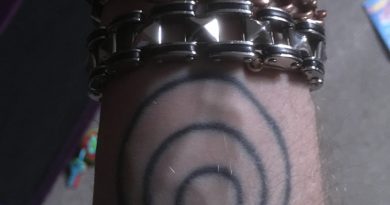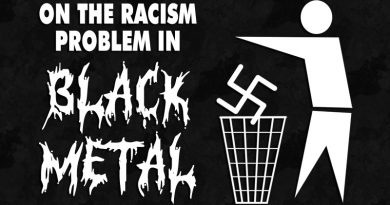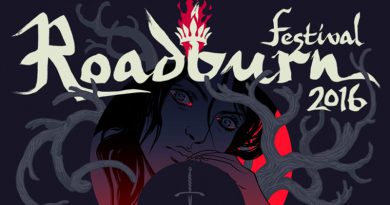Malcolm Dome 1955–2021: Farewell To An Inspiration
I first discovered heavy music at 10 years old when I was exposed to what remains my favourite band in the world, Iron Maiden. The beginnings of my music fandom predated the usage of the internet and as someone who through ‘quirky’ traits of personality doesn’t just casually do something I surrendered whole heartedly.
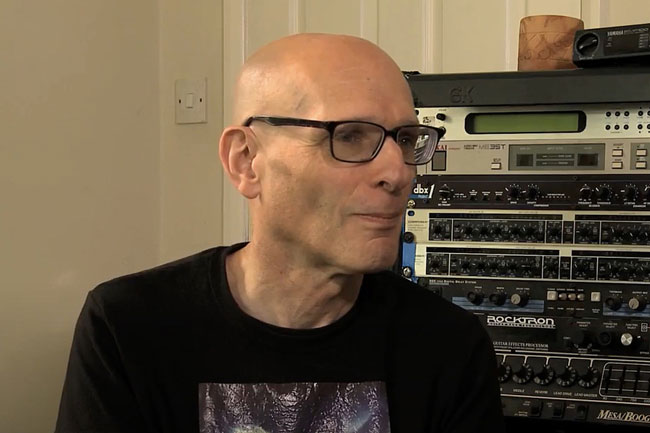
Music is not just a casual part of my life, but something that in many ways has defined me and I wanted to know everything about the music I became obsessed with.
It seems funny in these days where we are ‘sick of experts’ that anyone with a WordPress account and an opinion can call themselves a journalist. Until the rise of the internet, to know about music you had to read the available rock press to discover new bands or learn about new releases.
Having no outstanding musical ability, the realist in me knew that being a band was never going to be my calling in life. The next best thing to being involved in the music industry for me was to be a writer.
When news broke that sadly Malcolm had passed away at the age of 66, it hurt far more than I expected….
Growing up obsessively reading publications like Kerrang! many of the people I came to have immense respect for were the likes of Geoff Barton, Mick Wall, Morat, and of course Malcolm Dome (the man whose description of a distorted guitar literally named the magazine). When news broke that sadly Malcolm had passed away at the age of 66, it hurt far more than I expected.
I work for a company where industry decisions have seen a trend for companies ‘deskilling’ certain areas of the production process to aid recruitment, ensuring that processes involve simpler operations to open the potential workforce. Undeniably this has its merits, but it also comes with pitfalls as I mentioned earlier about the rise of the internet. I say this with the purest of intents, but I like experts and think they are a needed asset.
Writing is a part-time gig for me, but as a teenager, the sheer encyclopedic knowledge, the historical application of context, and the quality of writing that was a part of music journalism was inspiring. Those of us with enough of a persecution complex will know that heavy music is often looked down upon by the mainstream, or the bastons of popular culture, reading some of Malcolm‘s discourse that was so lovingly put together, informative, written with wit and panache was inspiring for me.
reading some of Malcolm’s discourse that was so lovingly put together, informative, written with wit and panache was inspiring for me…
As somebody who loves writing, my dream shifted from being a ‘rockstar’ to being a ‘rock journalist’, the destination being the hallowed pages of the Kerrang! of my formative years or later Metal Hammer.
Many will tell stories of Malcolm sitting by the window in the Crobar in London with a pint in this hand and a willingness to talk about music, but my experience is intrinsically personal. When I was at university trying to find my feet as a journalist, I chose to do a Media Module about Marilyn Manson. Manson had not long published his long autobiography The Long Hard Road Out Of Hell and was riding high on a wave of controversy.
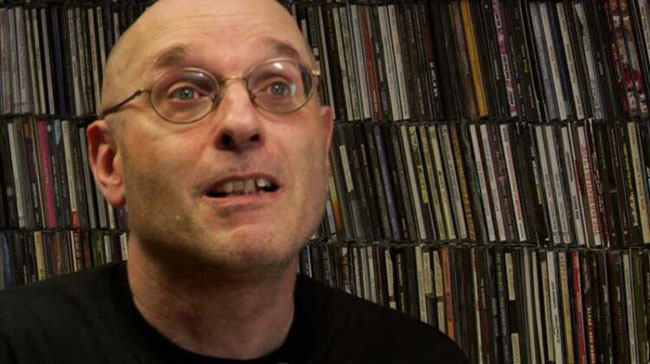
In order to lend my project credibility, I reached out to Dome who was working for Metal Hammer. Malcolm responded enthusiastically and agreed to an interview on camera discussing the topic in hand. I travelled up to Bath with a borrowed video camera and sat on the steps of the Future Publishing offices with Malcolm for over an hour where he answered my prepared questions on the topic, the current state of rock music and other controversial stars placing things into a historical context where we discussed everything from White Christian America to Alice Cooper, the Sex Pistols and using controversy to generate cash.
Off camera Malcolm asked me about my interests, hopes, and dreams and I expressed the desire to work in the industry, possibly the same publication. Despite this being a workday and several of his colleagues passing in and out of the building during, he took the time out of his day to help me with my project and discuss journalism as a career and give advice on the industry. As a 19-year-old kid spending time with somebody I had grown up reading the words of was a powerful moment.
As a 19-year-old kid spending time with somebody I had grown up reading the words of was a powerful moment…
I’m not going to pretend that we had a relationship, we did not remain in contact, despite me hoping one day work alongside him. History will tell you that Malcolm moved to Classic Rock and my life took a very different turn but Malcolm‘s words about something that I love so much was hugely inspiring, and a large part of why I write for The Sleeping Shaman.
Again, I am not a music journalist for my full-time job, however the requirement for due diligence was instilled in me by writers whose knowledge of the subject matter is every bit as talented and extensive as anybody in the industry. It’s fair to say that Malcolm‘s writing touched many bands, and fans, as the beginnings of the outpouring of sorrow reached social media from the likes of Total Rock, Iron Maiden, and many, many others whose lives have been affected by his words
he took the time out of his day to help me with my project and discuss journalism as a career…
Malcolm was one of the greatest writers and champions that heavy music had. His credibility had a journalistic integrity that meant when he threw his weight behind a band, this was not some cheap plug because the management needed sponsorship money, this was because the man was giving you an opinion that was as academic as it was subjectively passionate.
What I know of the man he would probably be embarrassed about me writing that he is one of my heroes, but there’s no doubt we have lost a huge piece of this industry. So personally, I would like to say more, but I’ll now just say Rest In Peace Malcom, and a heartfelt thank you because if not for your influence, I would not be the writer that I am today.
Scribed by: Mark Hunt-Bryden

